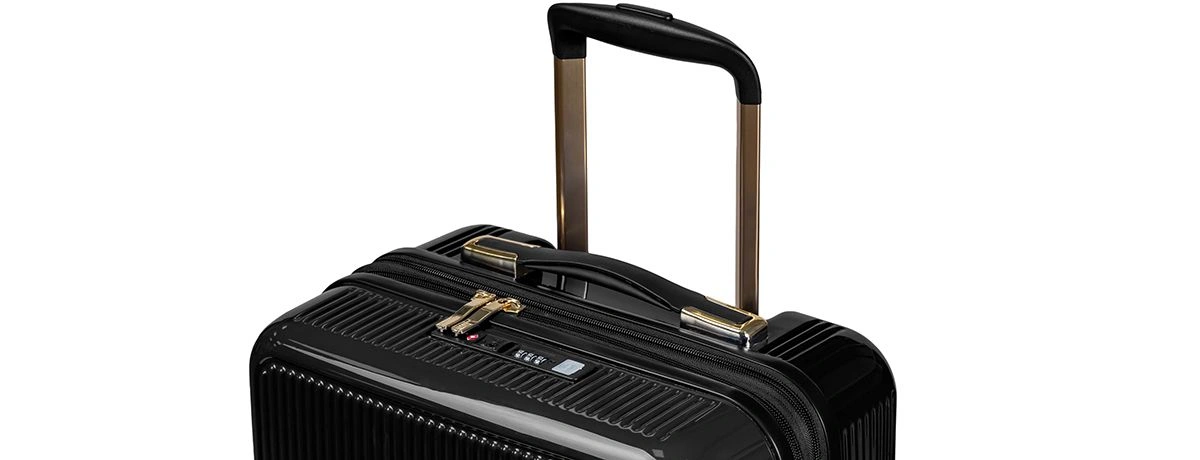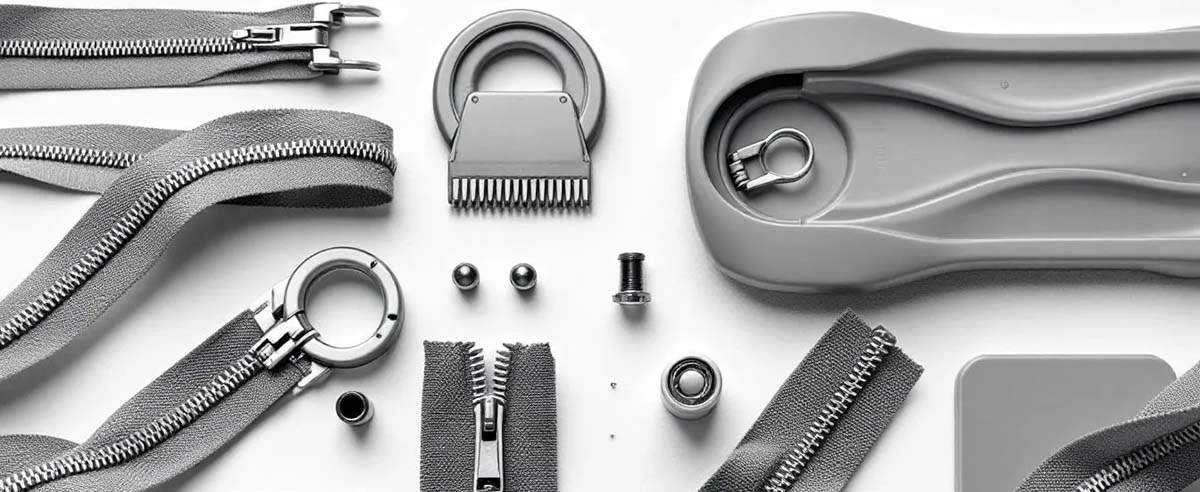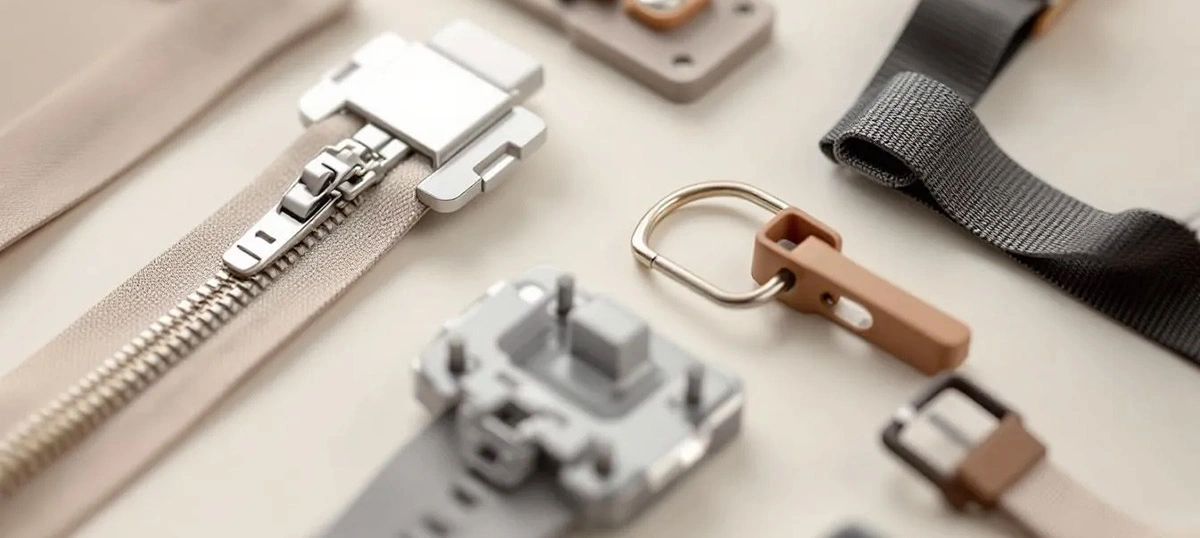How to Choose the Best Luggage Hardware for Suitcases, Bags, and Travel Gear?

Luggage hardware consists of the essential components like handles, wheels, and locks that keep your travel bags functional and durable. Understanding these elements is crucial whether you’re selecting new luggage or fixing your existing bags. In this article, we’ll break down the types of luggage hardware, materials used, and tips on choosing the right parts.
Key Takeaways
-
Understanding luggage hardware components, such as handles, wheels, and locks, is essential for ensuring durability and functionality during travel.
-
Quality control and testing are crucial to maintaining the integrity of luggage, with rigorous standards ensuring durability and performance over time.
-
One-stop sourcing for luggage hardware and bulk purchasing options can significantly streamline procurement processes and reduce costs for manufacturers.
Understanding Luggage Hardware

Luggage hardware refers to the structural and functional components used in suitcases, travel bags, backpacks, duffel bags, and outdoor gear. These components play critical roles in ensuring durability, user convenience, and overall product performance. Key components include:
-
Handles
-
Wheels
-
Locks
-
Straps
Frequent travelers rely on the functionality and reliability of these parts, which are often subjected to heavy loads and frequent handling.
Imagine trying to maneuver a suitcase without a sturdy handle or reliable wheels – it would be a traveler’s nightmare. Components like trolley systems and cart designs are designed to make transporting heavy luggage effortless, catering to various user needs with designs ranging from basic to complex.
Understanding these components and how to find their functions can greatly enhance your travel experience.
Types of Luggage Hardware Components
Luggage hardware encompasses a range of components that enhance both the functionality and durability of travel gear. Common types include:
-
Buckles
-
Hooks
-
Handles
-
Zippers and sliders
-
Wheels
-
Trolley systems
-
Feet and corners
-
Straps and webbing
-
Various accessories Each of these plays a vital role in ensuring a seamless travel experience.
Let’s break down some of these key components.
Handles and Straps
Handles and straps are the lifelines of any piece of luggage. They significantly impact maneuverability and ease of transport. Think about it: the type and comfort of a handle can make or break your travel experience. Handles come in various forms, including fixed, adjustable, and telescopic, each designed to serve different user needs. A secure, easy-to-grip handle ensures that you can carry your luggage comfortably, whether you’re rushing through an airport or strolling to your hotel.
Straps also play a crucial role, particularly for backpacks and duffel bags. Reinforced, adjustable straps provide comfort and flexibility, allowing you to carry your luggage in a way that suits you best. In addition, the strategic placement of D-rings and other attachment points can add to the versatility and functionality of the bag.
Wheels and Trolley Systems
Wheels and trolley systems are paramount for mobility. The choice of wheels can influence both the weight and the ease of maneuvering your luggage. Spinner wheels, for instance, allow for multidirectional movement, making it easier to navigate crowded spaces. In contrast, inline wheels are more suitable for smoother surfaces as they roll forward and backward.
Trolley systems are another crucial component, especially for heavy luggage. High-quality trolley systems, often made from materials like TPE (Thermoplastic Elastomers), offer a balance of durability and performance without adding excessive weight. These systems are designed to make transporting luggage a breeze, no matter how much you’re carrying.
Locks and Security Features
Security is a top priority for any traveler, and that’s where locks and security features come into play. TSA-approved locks are a popular choice as they allow security personnel to inspect luggage without damaging the lock or suitcase. Combination locks, which can be reset by users, provide a customizable security option.
In addition to locks, tamper-proof features and durable materials like zinc alloy, which is resistant to corrosion, are often used to enhance the security of your luggage. These features ensure that your belongings remain safe throughout your journey, giving you peace of mind.
Materials Used in Luggage Hardware

Materials used in luggage hardware are critical for the durability and performance of your travel gear. For example, aluminum alloys, particularly aircraft-grade, are valued for their strength but can add significant weight to the luggage. High-density plastics like polypropylene offer a good balance of flexibility and strength, making them ideal for internal structural support.
Another popular choice is ballistic nylon, known for its tear resistance and originally developed for military use. This material is commonly found in soft-shell luggage. Clients can also opt for materials like polycarbonate and even recycled options to align with their brand identity.
The selection of materials should be based on the intended use and the travel conditions expected.
Quality Control and Durability Testing
Quality control and durability testing are essential to ensure that luggage hardware can withstand the rigors of travel. Purchasing all components from a single supplier can enhance quality control, as the same supplier is responsible for all parts. This also streamlines communication, making it easier to address any issues or changes.
The dedicated work and craftsmanship involved in performing quality control and durability testing ensure that each piece of luggage hardware meets strict standards before reaching customers.
MH, for instance, implements strict quality control measures, including durability, load resistance, and drop testing to ensure their products meet high standards. These practices are vital for maintaining the integrity and performance of the luggage over time.
Customer Customization and OEM Services
Customization and OEM services offer brands the opportunity to enhance their luggage products to meet specific market needs. MH, for example, provides:
-
Custom molds
-
Logos
-
Finishes
-
OEM packaging, allowing for extensive personalization
-
Custom-made leather handles and other sourced handles as part of these services.
These customization options not only satisfy brand-specific needs but also enhance brand identity and product appeal. By offering unique and tailored solutions, brands can stand out in a competitive market, providing customers with products that meet their exact preferences.
MH is committed to customer satisfaction by ensuring that all customization services are designed to meet customer needs and deliver a superior customer experience.
One-Stop Sourcing for Luggage Hardware
One-stop sourcing simplifies the procurement process for manufacturers by offering access to all necessary components in one place. MH provides comprehensive sourcing options, including:
-
Hardware
-
Fabrics like Oxford and polyester
-
Sewing thread This approach reduces lead times and improves operational efficiency by streamlining the sourcing process.
By consolidating their sourcing needs with a single supplier, manufacturers can significantly reduce complexity and improve the overall production process. This not only saves time but also ensures consistent quality across all components.
To ensure availability of the required luggage hardware components, we recommend placing your order soon, as stock may be limited.
Wholesale Supply and Global Reach
Buying luggage hardware in bulk can lead to significant cost reductions due to volume discounts offered by suppliers. MH specializes in wholesale only, making it an ideal partner for factories and distributors. They provide a wide range of components for suitcases and travel bags, ensuring stable quality and competitive pricing.
With over 20 years of export experience and customers in more than 150 countries, MH has a well-established global distribution network. This extensive reach enables them to efficiently supply suitcase factories, outdoor brands, and wholesalers worldwide on a long-term basis.
How to Choose the Right Luggage Hardware
Choosing the right luggage hardware involves considering the specific needs of your travel. Different luggage types require specific hardware adapted to their intended use and travel conditions. For instance, if you frequently fly, you’ll want to select luggage that meets airline size requirements for carry-on and checked baggage.
Other factors to consider include the weight of the luggage to avoid excess baggage fees, the presence of compartments for better organization, and the type of material used. Hard-sided luggage is ideal for protecting fragile items, while soft-sided luggage may offer expanding capabilities for extra packing space.
DIY Suitcase Repair with Spare Parts
Performing DIY repairs can extend the life of your luggage and promote sustainability by reducing waste. Using replacement parts can significantly minimize environmental impacts and contribute to a more sustainable lifestyle. In many cases, repairs can be performed at home using basic tools and replacement parts.
In cases where wheels or handles are damaged, replacing these parts can significantly enhance the maneuverability and overall functionality of your luggage. Repairing luggage is often a more cost-effective solution compared to purchasing new bags. Many brands offer DIY repair options, allowing travelers to maintain and repair their luggage independently.
Summary
In conclusion, understanding and selecting the right luggage hardware can significantly enhance your travel experience. From handles and straps to wheels and locks, each component plays a vital role in ensuring durability, security, and convenience. By considering factors like material, quality control, and customization options, you can make informed decisions that align with your travel needs and brand preferences. So, the next time you shop for luggage, remember to pay attention to these critical components.
Frequently Asked Questions
What are the essential components of luggage hardware?
The essential components of luggage hardware are handles, wheels, locks, and straps, all of which play crucial roles in functionality and aesthetics. Selecting luggage with quality hardware enhances durability and ease of use.
Why is quality control important in luggage hardware?
Quality control is crucial in luggage hardware as it guarantees durability and reliability, ensuring that products can endure the challenges of frequent travel and provide convenience for users.
How can I customize my luggage hardware?
You can customize your luggage hardware by choosing options like custom molds, logos, finishes, and OEM packaging, enabling extensive personalization to reflect your style.
What materials are commonly used in luggage hardware?
Luggage hardware commonly utilizes aluminum alloys, high-density plastics such as polypropylene, ballistic nylon, and zinc alloy for durability and strength. These materials ensure that your luggage can withstand wear and tear during travel.
How can DIY repairs benefit my luggage?
DIY repairs can significantly extend the life of your luggage, reduce waste, and save you money compared to purchasing new bags. Consider tackling simple repairs yourself to enhance both the functionality and longevity of your luggage.


